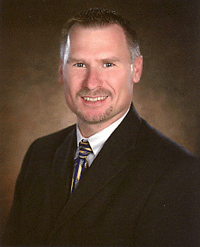SHSU To Evaluate State Career, Technology Ed Programs
Sam Houston State University, in collaboration with the Region VI Education Service Center, has been awarded a $150,000 grant by the Texas Education Agency to evaluate career and technology education programs in the state.
 |
Dwayne Pavelock |
Dwayne Pavelock, assistant professor of agricultural education, Doug Ullrich, associate professor of agricultural education, and Roger Hanagriff, associate professor of agricultural business, will be working with school administrators, teachers, students and parents from March 28 through Nov. 30, 2006 to gather information about the programs.
"This grant provides for the evaluation of the entire Career and Technology Education program for the state of Texas, from secondary schools to some post-secondary education," said Pavelock.
"Such an evaluation is only done about once every ten years and is an integral part of program improvement and the reauthorization process for Career and Technology and Education program funding."
The Texas Education Agency awarded only one grant for the evaluation. Representatives for the three finalists were called to Austin to make presentations and be interviewed by a selection committee.
"I think the committee was impressed with our proposal calling for a collaboration between Sam Houston State University and the Region VI Education Service Center," said Pavelock.
"They also seemed to highly regard our plans for gathering data and the various statistical measures we'll use to compile the results of our assessment," Pavelock added. "This is certainly one of the largest grants in which our department has been involved in recent years. We have received several grants from the Texas Education Agency, and we believe that the awarding of this most recent grant is indicative of their satisfaction with our work on previous projects."
Seven individual areas within the structure of the state's Career and Technology Education program will be assessed. They include agricultural science and technology, business, family and consumer sciences, health science technology, marketing, technology, and trade and industrial education. State-level leadership, professional development activities and student organizations are among the various factors within each program to be examined.
The comprehensive evaluation will be conducted through on-line surveys of administrators, teachers and students, as well as through site visits to schools, analyzing Public Education Information Management System data, and conducting focus groups via statewide teleconferencing.
Once the data is compiled the evaluation team will identify strengths and weaknesses of the programs and offer suggestions for expanding model programs, correcting shortcomings, identifying needed resources and developing short and long term strategies to better meet the needs of secondary and post-secondary students.
They will also assess how the needs of special populations are being met, and the extent to which career and technology education programs enable special populations to meet state performance indicators and prepare for further learning, or to attain high skill, high wage careers.
—END—
SHSU Media Contact: Julia May
April 20, 2006
Please send comments, corrections, news tips to Today@Sam.edu.
|


